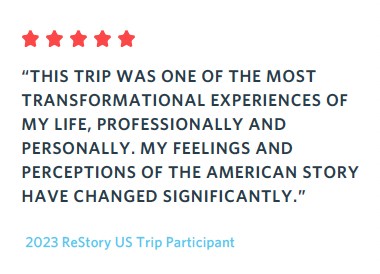American South Pilgrimage
America’s story is one of profound and aspirational ideals: life, liberty, and the pursuit of happiness. Yet, while often unsaid, it is also one of historic and ongoing struggles: inequality, injustice, and erasure. This legacy of our past, and the ways we choose to tell it, has cost us our collective flourishing and limited the possibilities of our future. America’s story has been fractured. But it can be repaired. If we hope to build a better future, we must begin by ReStorying our past.
Through the American South Pilgrimage, we learn how to tell a more true and honest American story and help bring healing and repair within our local community.
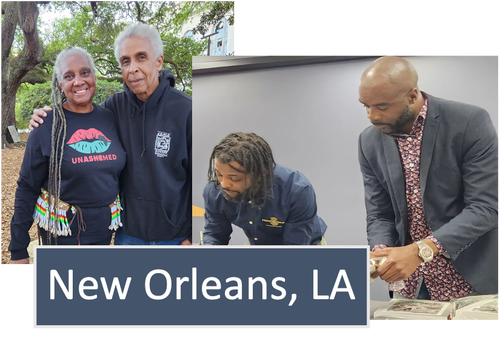
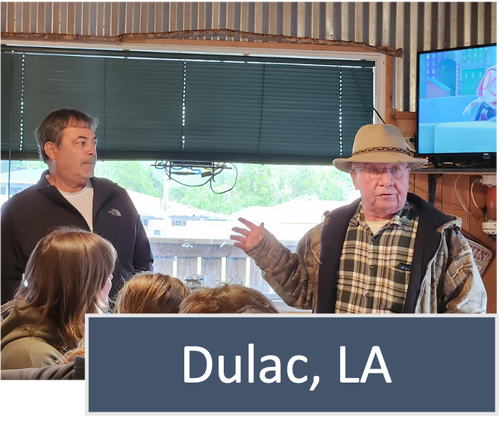
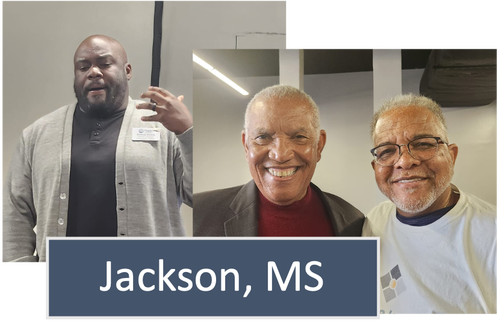
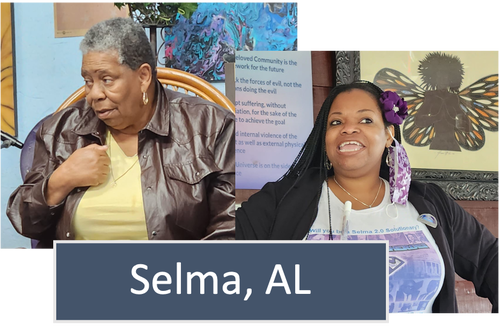
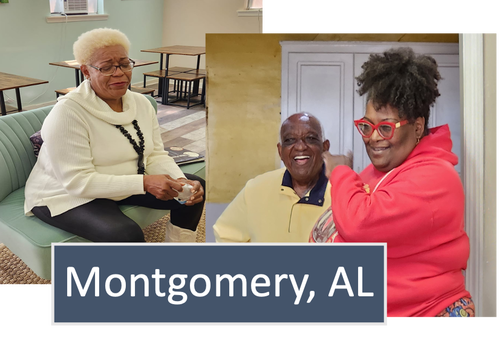
2024 American South Pilgrimage
June 25 - July 3, 2024
Through the American South Pilgrimage, led in partnership with The Telos Group, we learn how to tell a more true and honest American story by taking an in-depth look at the ongoing legacy of slavery and racism in our country and listening to people who continue to be negatively impacted by this legacy. We are then given tools that help us tell a more true and honest American story so we may help bring healing and repair within our local community. We all can make a difference: from teachers to diplomats, artists to politicians, stay-at-home parents to entrepreneurs, students to police officers, liberals to conservatives, activists to faith leaders. Anyone and everyone willing to enter this deeply personal, transformative journey helps to co-create a different, and better, reality for all.
- Trip dates: June 25 - July 3, 2024 (Arrive no later than 2 pm June 26)
- Cost: $3,400/person (double-occupancy) + airfare
- Single-occupancy $3,800 + airfare
- Ages 14+ are welcome. Those under 18 must be accompanied by an adult
- Trip Brochure with Itinerary
Open registration has ended.
2024 Participant Information
For those registered to go on the June 2024 Pilgrimage
Donate Toward Someone's Trip
Support the formation of local peacemakers wishing to bring healing and repair within our local community by making a donation covering trip related expenses.
Reflections on UPPC's March 2023 Pilgrimage
In March 2023, 19 people journeyed from UPPC and Discovery Community Church to Louisiana, Mississippi, and Alabama to take a deep dive into the legacy of our country’s past and learn how they can help bring healing and repair in our local community by owning and transforming the legacy of our shared American story. Featured below are some reflections on what the group experienced.
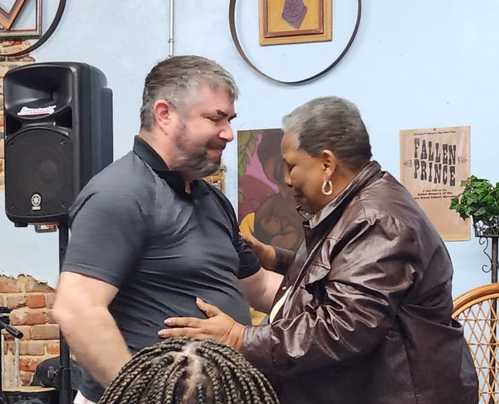
by Aaron Paker
Prior to the pilgrimage I had done a lot of reading and research, been in countless factual debates, and generally did not expect to hear anything that would surprise me. To a great extent, that was true. I did not hear any facts that I was shocked by, but I was not prepared for the profound effect that it would have to hear the stories of people who lived or were still living the reality of racism and segregation.
Reading about innocent men locked up for decades is not the same as sitting in a room with two men, my own age, who went to jail around the time I went to college and spent 20 plus years in a penitentiary that still serves as a working cotton plantation. One of them served his 23 years despite the police having evidence and a full confession from the actual perpetrator, before he ever went to trial. Yet, these men were filled with joy and peace.
Reading about Bloody Sunday and hearing about confederate cemeteries is not the same as walking through a pristine cemetery that celebrates the founder of the KKK just hours before having dinner with an amazing woman who walked across the Edmond Pettus bridge in Selma on Bloody Sunday when she was 11. She was filled with humor and grace and even told us the importance of the cemetery as a constant reminder to outsiders that racism and bigotry are still alive and well and not a thing of the past. It is part of the ugly truth that everyone needs to know and if you tear down all the signs of that ugliness, it is too easy to pretend that they no longer exist.
The facts did not surprise me, but the way I experienced them made me realize that books and facts are not enough. No true change will ever take place, in myself or society at large, until we stop treating this as a fact-based issue and start treating it as an emotional one. Stories and experiences will bring about change much faster than facts in a book. Emotions may be uncomfortable, possibly even dangerous, but that makes them precisely what is needed if we are ever to see true racial reconciliation in America.
Reading about innocent men locked up for decades is not the same as sitting in a room with two men, my own age, who went to jail around the time I went to college and spent 20 plus years in a penitentiary that still serves as a working cotton plantation. One of them served his 23 years despite the police having evidence and a full confession from the actual perpetrator, before he ever went to trial. Yet, these men were filled with joy and peace.
Reading about Bloody Sunday and hearing about confederate cemeteries is not the same as walking through a pristine cemetery that celebrates the founder of the KKK just hours before having dinner with an amazing woman who walked across the Edmond Pettus bridge in Selma on Bloody Sunday when she was 11. She was filled with humor and grace and even told us the importance of the cemetery as a constant reminder to outsiders that racism and bigotry are still alive and well and not a thing of the past. It is part of the ugly truth that everyone needs to know and if you tear down all the signs of that ugliness, it is too easy to pretend that they no longer exist.
The facts did not surprise me, but the way I experienced them made me realize that books and facts are not enough. No true change will ever take place, in myself or society at large, until we stop treating this as a fact-based issue and start treating it as an emotional one. Stories and experiences will bring about change much faster than facts in a book. Emotions may be uncomfortable, possibly even dangerous, but that makes them precisely what is needed if we are ever to see true racial reconciliation in America.
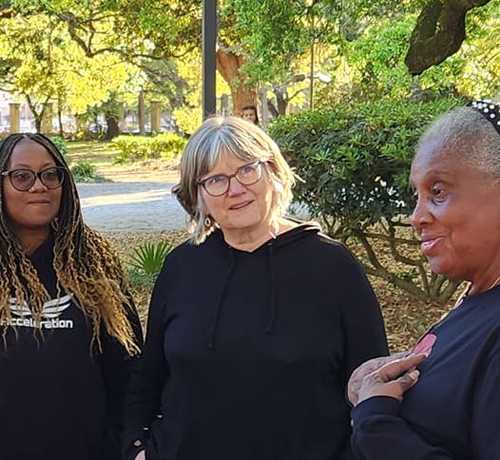
by Kathy Nussbaum
Early in our trip, we met Robert and Jerome; two black men oozing with love, gentleness, and forgiveness. They had both spent decades in prison for crimes they didn’t commit, in spite of evidence supporting their innocence. Rather than becoming angry and bitter, they both agreed they don’t have time for that. They were given new life when they were exonerated, and they want to spend it loving others and working toward racial healing. It was beautiful to hear their stories and perspectives. Their hearts reminded me a lot of the heart of Jesus.
It seems like we, as followers of Jesus, should be craving and seeking out opportunities to be a part of this kind of healing. As a mental health provider, I have learned that I need to do some deep listening to stories of pain, injustice and trauma before we can ever move forward. A consistent theme we heard on our trip was the same thing; the need to be heard and to have the truth be told.
What would it be like if all of us Jesus followers decided to put aside politics and judgement and deeply listen to the stories of our neighbors feeling the effects of hatred or discrimination? How might that change us? How might that change our neighborhoods? How might people be drawn to Jesus? Those of us who traveled on this American Pilgrimage journey (the team was incredible, I might add) are asking questions like this and will continue to seek God’s guidance. We’d love to have others join us in this journey of listening.
It seems like we, as followers of Jesus, should be craving and seeking out opportunities to be a part of this kind of healing. As a mental health provider, I have learned that I need to do some deep listening to stories of pain, injustice and trauma before we can ever move forward. A consistent theme we heard on our trip was the same thing; the need to be heard and to have the truth be told.
What would it be like if all of us Jesus followers decided to put aside politics and judgement and deeply listen to the stories of our neighbors feeling the effects of hatred or discrimination? How might that change us? How might that change our neighborhoods? How might people be drawn to Jesus? Those of us who traveled on this American Pilgrimage journey (the team was incredible, I might add) are asking questions like this and will continue to seek God’s guidance. We’d love to have others join us in this journey of listening.
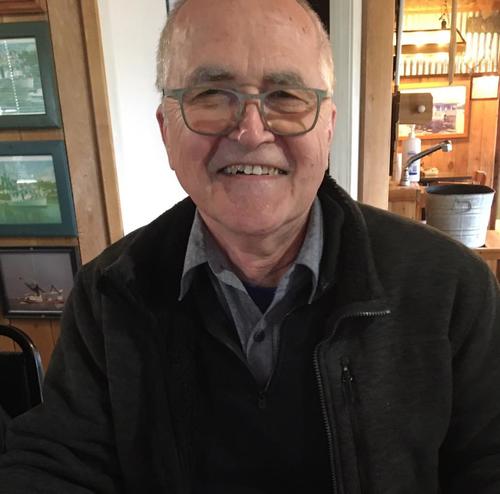
by Barry Carlaw
If you look carefully at the one of many iconic pictures of the freedom march from Selma to Montgomery in 1965, you might see a young black girl, wearing a light colored dress to the right and a little behind Dr. Martin Luther King Jr. I certainly didn’t notice. This young girl was only 11 years old. We had the pleasure of meeting with that same person, now a sprightly, 69 year young advocate of voting rights.
Joanne Bland can sure tell a story or two from her amazing past. She describes herself as a “feisty” child, (and she continues to project a delightfully feisty personality!) but quick to add, “Now I know violence in any form is wrong.” As Rep. John Lewis is known to have said, in part, “get in good trouble,” Ms. Bland almost boastfully told us, “By the time I was 13 years old, I’d been in jail 13 times.” Now that’s a record of good trouble to be proud.
Born and raised in Selma, she recalled that her mother, who was in need of a blood transfusion, “died in that hospital, because the hospital didn’t have black blood.” Such were the days, and so much more injustice in a divided South, where even the life of a Black person meant less than the racially motivated “offense” of mixing blood. We learned that Ms. Bland’s grandmother was an organizer of the Dallas County Voters League. Gramma often expressed the truism, “to vote is to have power for change.” Her grandmother would say, “When we get our freedom, you can sit at that counter of the Carter drug store and have that ice cream cone, [like all the white children could do.]” Ms. Bland never did experience the childhood joy of eating that ice cream cone at the counter. If you would like to know more of Joanne Bland’s “Journey for the Soul,” visit iamjoannebland.com.
It is so easy for me to take for granted the everyday freedoms that have come with my life as a privileged person in America. Yet, the people of past and present, who touched my soul on this pilgrimage, have fought and continue to fight, for those same rights and freedoms. Joanne’s story both angers and inspires me to become more involved in the pursuit of freedom and justice for all.
Joanne Bland can sure tell a story or two from her amazing past. She describes herself as a “feisty” child, (and she continues to project a delightfully feisty personality!) but quick to add, “Now I know violence in any form is wrong.” As Rep. John Lewis is known to have said, in part, “get in good trouble,” Ms. Bland almost boastfully told us, “By the time I was 13 years old, I’d been in jail 13 times.” Now that’s a record of good trouble to be proud.
Born and raised in Selma, she recalled that her mother, who was in need of a blood transfusion, “died in that hospital, because the hospital didn’t have black blood.” Such were the days, and so much more injustice in a divided South, where even the life of a Black person meant less than the racially motivated “offense” of mixing blood. We learned that Ms. Bland’s grandmother was an organizer of the Dallas County Voters League. Gramma often expressed the truism, “to vote is to have power for change.” Her grandmother would say, “When we get our freedom, you can sit at that counter of the Carter drug store and have that ice cream cone, [like all the white children could do.]” Ms. Bland never did experience the childhood joy of eating that ice cream cone at the counter. If you would like to know more of Joanne Bland’s “Journey for the Soul,” visit iamjoannebland.com.
It is so easy for me to take for granted the everyday freedoms that have come with my life as a privileged person in America. Yet, the people of past and present, who touched my soul on this pilgrimage, have fought and continue to fight, for those same rights and freedoms. Joanne’s story both angers and inspires me to become more involved in the pursuit of freedom and justice for all.
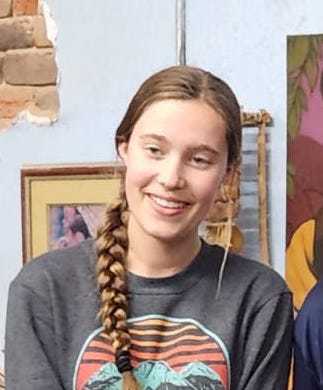
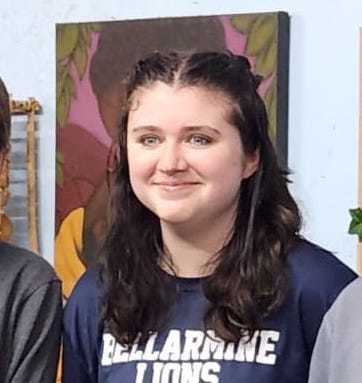
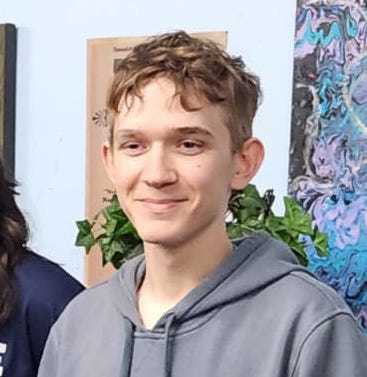
Adahlia Bosh
Rian Paker
On the trip, my favorite person that I met was Joanne Bland. She is a first-hand witness to the civil rights movement who participated in many protests as a child. She was even jailed multiple times before she turned 11. Her experiences of segregation and racism made me think of how much has changed, but also how much is left to do. One thing she told me I will never forget, as she made me say it multiple times until I got it just right: “I am the most important piece of the puzzle.” She taught us that the puzzle of reconciliation is not complete until everyone’s piece is fitted in.
On the Telos trip to the south I learned a lot and felt like I grew as a person. I saw ways that past generations had made huge mistakes and huge wrongdoings, but I also saw ways that my generation and future generations can help to heal the wounds and rifts that were created in the past and are still carried on now. Over the course of the entire trip the most impactful place that we visited was the legacy museum in Montgomery, Alabama. There I was able to see what life was like throughout history for people who were enslaved and discriminated against. After the legacy museum when I was processing everything I had learned it fully occurred to me how important it is to stand up for your own rights and how much more important it is to stand up for the rights of others, even if it’s just small things, one positive action has the potential to start a ripple effect.
Cameron Woicik
The best part of the trip was New Orleans. It was a great chance for me to get to experience new things. I was able to try new foods and explore a new place with a different culture. The trip also gave me new perspectives on the people I will meet in the future and those I already know. At first I was worried that I would not like any of the food. However, after trying some of the foods I discovered that I actually liked it. Even some of the foods that I thought I would never like, I ended up liking. This showed me that the food that I know and eat daily, was not the only food. This trip also showed me that the food of other cultures can taste as good or even better than the food that I am used to. The other part of New Orleans that I liked was the different culture. I rarely leave Washington, so getting to visit a new place was really refreshing. Getting to experience a different culture helped me to better understand those around me. I am able to understand that people who live in a different environment from me will have different experiences and perspectives on life.
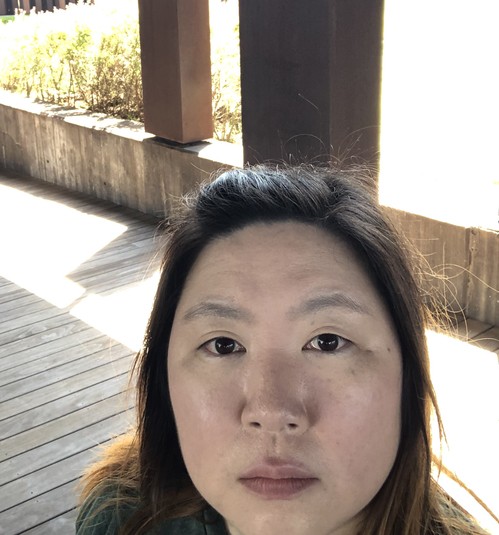
by Jane Narr
(Discovery Community Church)
I treasured listening to testimonies of black faith leaders and learning from their lived experiences. I dream for our churches to know we can lament losses and respond with gracism and nonviolence as we raise our collective voices in disruptive solidarity for change.
A recurring and lingering theme has been the sanctity of NAMES (anglicized, baptized, christianized). The utter lack of respect that so-called Christ followers had for others led to the atrocious separation of black families forever. Days before the trip I finally made the connection that many Black Americans and White Americans have the same last names due to slavery. Even more infuriating was the audacity of Whites who changed their spelling ever so slightly to distance themselves from that history which reeks of white supremacy and stupidity.
I didn’t care much for either of my first names - American (jane sue narr) and Korean (na soo.jung) - because they’re so simple; I was less bothered by my family name since it’s less common. Many immigrants opt to choose a name that’s easy to pronounce so as to better assimilate in dominant culture, while others resist the tempting lies. Nevertheless, I with a plain name that rhymes too well was teased mercilessly. Oddly, it’s almost as if my Korean name has been forgotten, but it’s also me, who I am.
Some ruminating on the reprehensible damage of colonizers’ erasure of names: Whitney Plantation (enslaved persons) - real, original names unknown; Houma Nation (indigenous peoples) - discriminating sacred; Incarcerated (prisoners) - stripped to numbers; can reclaim if released
The tension in telling true narratives and intersections of choosing and being given new names is not lost on me. Let’s not be complacent in glossing over the difficult.
A recurring and lingering theme has been the sanctity of NAMES (anglicized, baptized, christianized). The utter lack of respect that so-called Christ followers had for others led to the atrocious separation of black families forever. Days before the trip I finally made the connection that many Black Americans and White Americans have the same last names due to slavery. Even more infuriating was the audacity of Whites who changed their spelling ever so slightly to distance themselves from that history which reeks of white supremacy and stupidity.
I didn’t care much for either of my first names - American (jane sue narr) and Korean (na soo.jung) - because they’re so simple; I was less bothered by my family name since it’s less common. Many immigrants opt to choose a name that’s easy to pronounce so as to better assimilate in dominant culture, while others resist the tempting lies. Nevertheless, I with a plain name that rhymes too well was teased mercilessly. Oddly, it’s almost as if my Korean name has been forgotten, but it’s also me, who I am.
Some ruminating on the reprehensible damage of colonizers’ erasure of names: Whitney Plantation (enslaved persons) - real, original names unknown; Houma Nation (indigenous peoples) - discriminating sacred; Incarcerated (prisoners) - stripped to numbers; can reclaim if released
The tension in telling true narratives and intersections of choosing and being given new names is not lost on me. Let’s not be complacent in glossing over the difficult.
Frequently Asked Questions
Why is the cost of this trip more expensive than what I would expect to pay for a domestic vacation or other “mission trips”?
On a Telos trip, you aren’t just going to museums and tourist attractions. Instead, you meaningfully engage with extraordinary people, sample the local cuisine and culture, and learn from experienced peacemakers striving to create the Beloved Community. Because Telos’ partners are at the center of a meaningful experience, it’s important that all the local partners you meet with are appropriately compensated for their time. The trip pricing accounts for all these expenses as well as Telos’ staff coordination and facilitation of the experience.
There are many books and documentaries on the history of slavery and racism in America. Will this trip provide me anything I can’t learn from a book or documentary?
Books and documentaries are great start for learning about a subject. They, however, lack the transformational power of lived experience. In a Telos trip, you will connect with people from all walks of life, journey into their realities, and leave with a deeper understanding that will challenge you into new ways of engaging conflict, seeking peace, and creating communities where all people flourish.
What is included in my trip cost?
From the time of our first meeting in New Orleans with Telos until our wrap up meeting in Montgomery, all expenses related to our hotel accommodations, meals and non-alcoholic beverages, internal transportation (including driver, guides and tips), site entrances, speaker honorariums, and Telos facilitation is included.
What is not included in my trip cost?
Airfare, requisite health and travel insurance, gifts/souvenirs, additional gratuities, personal items, incidentals, and anything not mentioned in “included” above. Also any additional hotel nights due to flight itineraries or unforeseen changes to flights.
